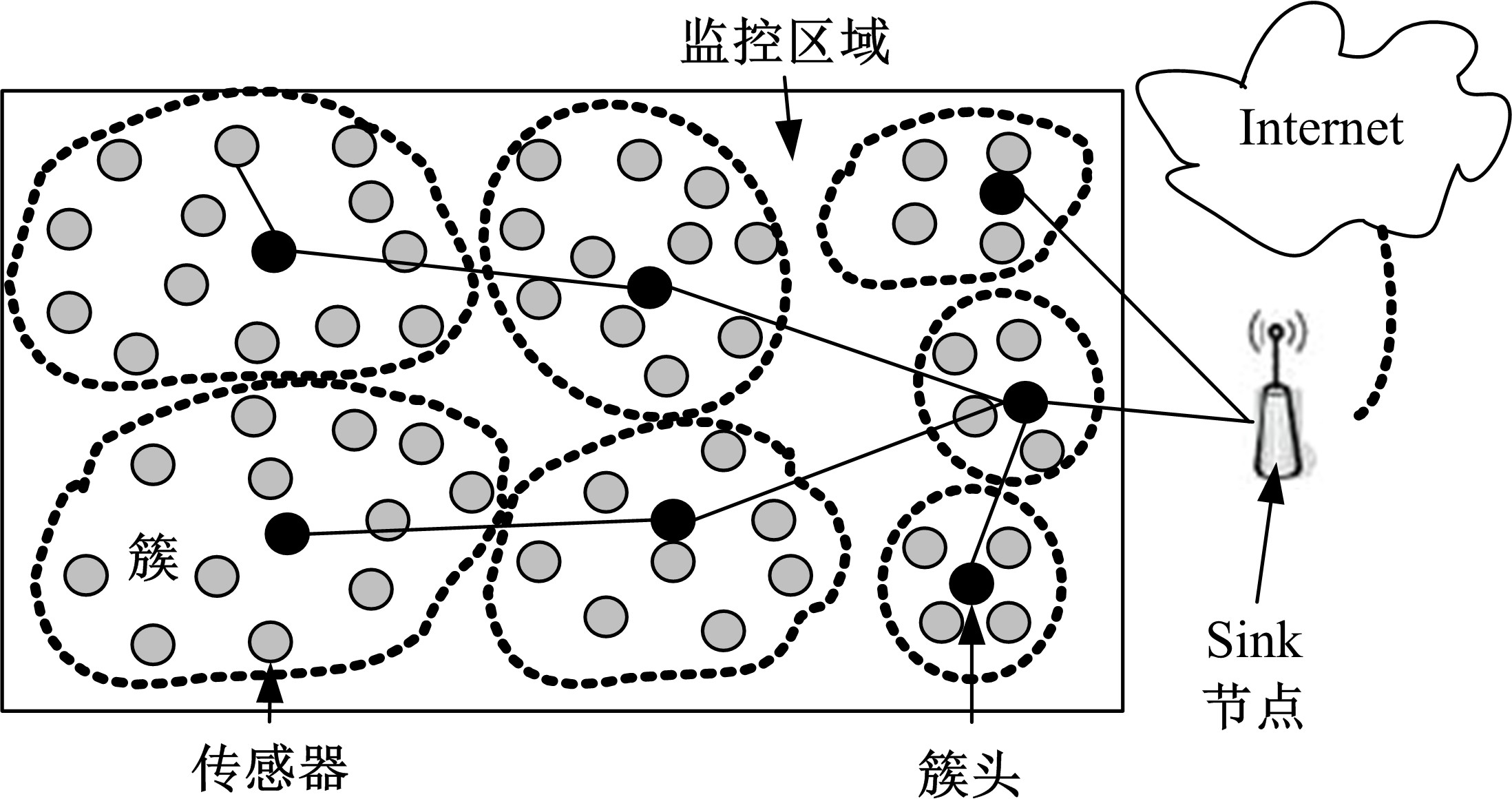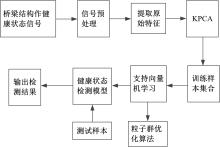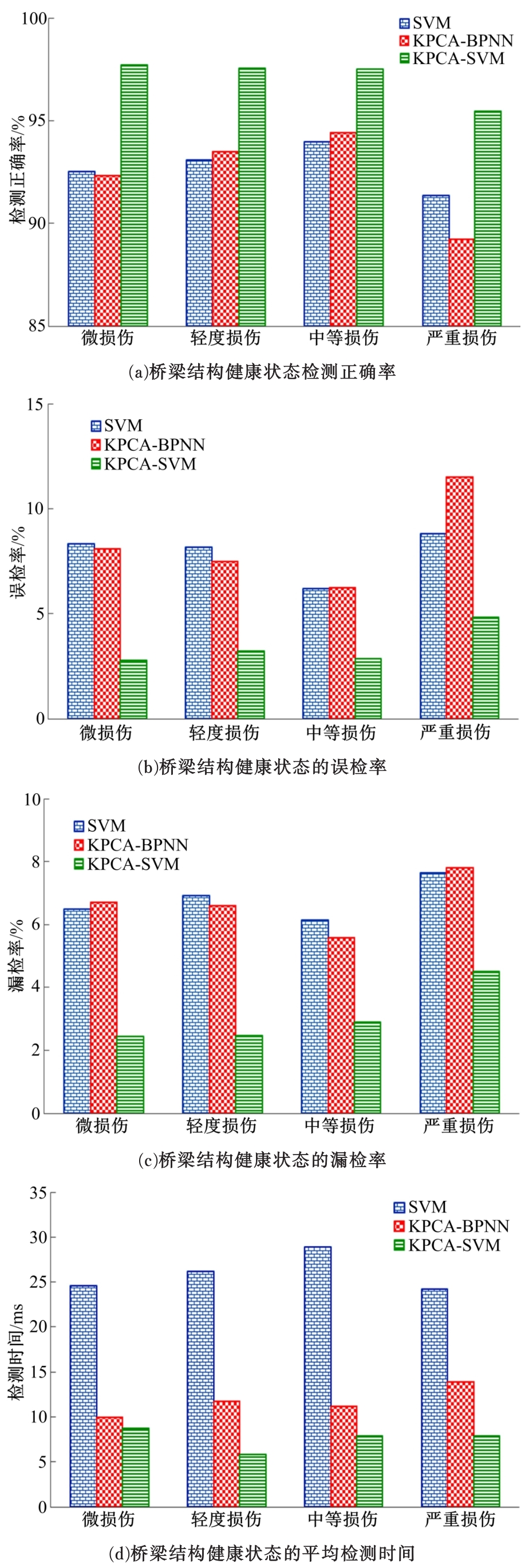Journal of Jilin University(Engineering and Technology Edition) ›› 2020, Vol. 50 ›› Issue (2): 565-571.doi: 10.13229/j.cnki.jdxbgxb20190083
Health detection of bridge structures based on data mining technology
Li-qun WU1( ),Liang-liang ZHANG2
),Liang-liang ZHANG2
- 1.CET-College of Engineering and Technology,Southwest University, Chongqing 400715, China
2.School of Civil Engineering, Chongqing University, Chongqing 400045, China
CLC Number:
- TM933
| 1 | 柳春光, 张士博. 考虑地震、波浪和海流作用的跨海桥梁结构研究进展[J]. 大连理工大学学报, 2017, 57(1): 105-110. |
| Liu Chun-guang, Zhang Shi-bo. Research progress of sea-crossing bridge structure considering action of earthquake, wave and current[J]. Journal of Dalian University of Technology, 2017, 57(1): 105-110. | |
| 2 | Wang J, Song Y, Yu Z. Impact factor method for design of bridge foundations under ship collisions[J]. Advances in Structural Engineering, 2017, 20(4): 534-548. |
| 3 | 余志武, 何华武, 蒋丽忠, 等. 多动力作用下高速铁路轨道-桥梁结构体系动力学及关键技术研究[J]. 土木工程学报, 2017, 50(11): 1-9. |
| Yu Zhi-wu, He Hua-wu, Jiang Li-zhong, et al. Dynamics and key technology research on high-speed railway track-bridge system under multiple dynamic sources[J]. China Civil Engineering Journal, 2017, 50(11): 1-9. | |
| 4 | 崔春义, 孟坤, 陈守龙, 等. 场地软土夹层对桥梁结构相互作用体系动力响应影响参数化分析[J]. 防灾减灾工程学报, 2017, 37(6): 951-957. |
| Cui Chun-yi, Meng Kun, Chen Shou-long, et al. Parametric analyses of effects of soft-soil layer on seismic response of interaction system of bridge structure[J]. Journal of Disaster Prevention and Mitigation Engineering, 2017, 37(6): 951-957. | |
| 5 | 万华平, 任伟新, 颜王吉. 桥梁结构动力特性不确定性的全局灵敏度分析的解析方法[J]. 振动工程学报, 2016, 29(3): 429-435. |
| Wan Hua-ping, Ren Wei-xin, Yan Wang-ji. Analytical global sensitivity analysis for uncertainty in structural dynamic properties of bridges[J]. Journal of Vibration Engineering, 2016, 29(3): 429-435. | |
| 6 | 陈东军, 李天华, 彭凯, 等. 基于损伤性能函数的桥梁结构损伤识别[J]. 重庆交通大学学报: 自然科学版, 2018, 37(10): 1-7, 20. |
| Chen Dong-jun, Li Tian-hua, Peng Kai, et al. Bridge structure damage identification based on the damage performance function[J]. Journal of Chongqing Jiaotong University (Natural Sciences), 2018, 37(10): 1-7, 20. | |
| 7 | 李宇婧, 李宏男, 李超. 基于偏好序的桥梁结构全寿命抗震设计多目标优化模型[J]. 中国公路学报, 2017, 30(12): 187-195. |
| Li Yu-jing, Li Hong-nan, Li Chao. Preference-based multi-objective optimization model for life-cycle seismic design of bridge [J]. China Journal of Highway and Transport, 2017, 30(12): 187-195. | |
| 8 | Lai Z, Lei Y, Zhu S, et al. Moving-window extended kalman filter for structural damage detection with unknown process and measurement noises[J]. Measurement, 2016, 88: 428-440. |
| 9 | 刘洋, 熊伟芬, 邱明喜. 基于正态云模型的桥梁结构安全风险评价[J]. 筑路机械与施工机械化, 2017, 34(9): 116-120. |
| Liu Yang, Xiong Wei-fen, Qiu Ming-xi. Risk assessment of bridge structures based on normal cloud model[J]. Road Machinery & Construction Mechanization, 2017, 34(9): 116-120. | |
| 10 | 兰日清, 李小军, 丰彪, 等. 近场强震作用下城市桥梁结构灾害评价方法研究[J]. 自然灾害学报, 2017, 26(4): 135-142. |
| Lan Ri-qing, Li Xiao-jun, Feng Biao, et al. Study on the seismic damage evaluation method of urban bridges under the near-field strong ground motion[J]. Journal of Natural Disasters, 2017, 26(4): 135-142. | |
| 11 | Mansouri M, Avci O, Nounou H, et al. Iterated square root unscented Kalman filter for nonlinear states and parameters estimation: three DOF damped system[J]. Journal of Civil Structural Health Monitoring, 2015, 5(4): 493-508. |
| 12 | 李修云, 黄硕, 杨文伟, 等. 面向桥梁结构状态预测的ARMA-GM组合时序模型研究[J]. 重庆交通大学学报: 自然科学版, 2016, 35(4): 6-9, 24. |
| Li Xiu-yun, Huang Shuo, Yang Wen-wei, et al. Study on ARMA-GM combined time-series model for structural state prediction of bridges[J]. Journal of Chongqing Jiaotong University (Natural Sciences), 2016, 35(4): 6-9, 24. | |
| 13 | Fan W, Yuan W. Dynamic demand of bridge structure subjected to vessel impact using simplified interaction model[J]. Journal of Bridge Engineering, 2017, 16(1): 117-126. |
| 14 | 张春丽, 吕中荣. 考虑温度影响的桥梁结构损伤识别[J]. 中山大学学报: 自然科学版, 2016, 55(3): 102-105. |
| Zhang Chun-li, Lu Zhong-rong. Structural damage identification including the temperature difference based on response sensitivity analysis[J]. Acta Scientiarum Naturalium Universitatis Sunyatseni, 2016, 55(3): 102-105. | |
| 15 | 肖书敏, 闫云聚, 姜波澜. 基于小波神经网络方法的桥梁结构损伤识别研究[J]. 应用数学和力学, 2016, 37(2): 149-159. |
| Xiao Shu-min, Yan Yun-ju, Jiang Bo-lan. Damage identification for bridge structures based on the wavelet neural network method [J]. Applied Mathematics and Mechanics, 2016, 37(2): 149-159. | |
| 16 | 隗海林, 包翠竹, 李洪雪, 等. 基于最小二乘支持向量机的怠速时间预测[J]. 吉林大学学报: 工学版, 2018, 48(5): 1360-1365. |
| Kui Hai-lin, Bao Cui-zhu, Li Hong-xue, et al. Idling time prediction method based on least square support vector machine[J]. Journal of Jilin University (Engineering and Technology Edition), 2018, 48(5): 1360-1365. | |
| 17 | 李元诚, 邱日轩, 曾婧. 基于核主成分分析的智能电网盲在线虚假数据注入攻击[J]. 电网技术, 2018, 42(7): 2270-2278. |
| Li Yuan-cheng, Qiu Ri-xuan, Zeng Jing. Blind online false data injection attack using kernel principal component analysis in smart grid[J]. Power System Technology, 2018, 42(7): 2270-2278. | |
| 18 | 陈永高. 基于自适应EEMD和盲辨识算法的桥梁结构模态参数识别[J]. 重庆交通大学学报: 自然科学版, 2016, 35(3): 11-16. |
| Chen Yong-gao. Modal parameter identification of bridge structure based on adaptive EEMD and blind identification algorithm[J]. Journal of Chongqing Jiaotong University (Natural Sciences), 2016, 35(3): 11-16. | |
| 19 | 徐健, 周志祥, 赵丽娜, 等. 基于AEEMD和改进DATA-SSI算法的桥梁结构模态参数自动化识别[J]. 土木工程学报, 2017, 50(7): 87-98. |
| Xu Jian, Zhou Zhi-xiang, Zhao Li-na, et al. Automatic identification of modal parameter for bridges based on AEEMD and improved DATA-SSI[J]. China Civil Engineering Journal, 2017, 50(7): 87-98. | |
| 20 | 马宏伟, 林逸洲, 聂振华. 利用少量传感器信息与人工智能的桥梁结构安全监测新方法[J]. 建筑科学与工程学报, 2018, 35(5): 9-23. |
| Ma Hong-wei, Lin Yi-zhou, Nie Zhen-hua. New methods of structural health monitoring based on small amount of sensor information and artificial intelligence[J]. Journal of Architecture and Civil Engineering, 2018, 35(5): 9-23. |
| [1] | LIU Han-bing, WU Chun-li, CHENG Yong-chun. Sensor placement on bridge structure based on genetic algorithms with different fitness functions [J]. 吉林大学学报(工学版), 2012, 42(01): 51-56. |
|
||





